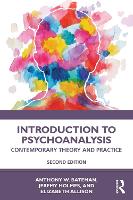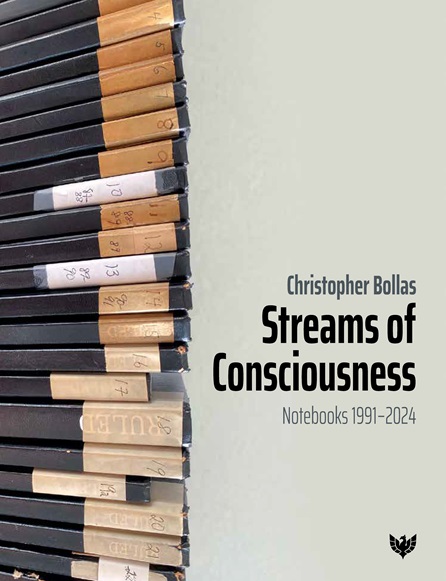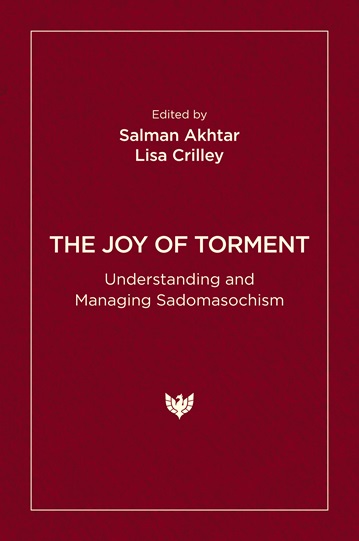Knowing What Psychoanalysts Do and Doing What Psychoanalysts Know

Book Details
- Publisher : Rowman & Littlefield
- Published : February 2024
- Cover : Paperback
- Pages : 296
- Category :
Psychoanalysis - Catalogue No : 97712
- ISBN 13 : 9781538188101
- ISBN 10 : 1538188104
Also by David Tuckett
Also by Elizabeth Allison
There are currently no reviews
Be the first to review
This book, founded on the in-depth discussion of sixteen clinical cases of psychoanalysis, tries to answer the question of what psychoanalysts do when they are practicing psychoanalysis.
The authors have collaborated with over a thousand colleagues worldwide to collect a unique dataset of everyday clinical sessions using a new workshop discussion method designed to reveal differences. Faced with diversity but wanting to surface and understand it, not suppress it, they had to evolve a new theoretical framework. It covers different approaches to the analytic situation (using the metaphors, cinema, dramatic monologue, theatre and immersive theatre); different sources of data to use to infer unconscious content, differences in the troubles patients unconsciously experience and how to approach them and differences in when, about what and how a psychoanalyst should talk.
Eventually taking the form of 11 very practical questions for psychoanalysts to ask of each session they conduct, the framework tries to help experienced psychoanalysts and students alike to choose what they want to try to do and to assess for themselves how far they are doing it. A final chapter applies the new framework and eleven practical questions to some contemporary technical controversies with some surprising results.
Reviews and Endorsements
An admirable, heroic, rigorous, sustained, effort that gives us access to information well beyond surmise, the only other approach to find out what analysts do, and even more valuably what they think and what they unknowingly believe they are doing and why. The book is very stimulating and I hope our fellow practitioners appreciate it.
Ron Britton, training analyst and fellow, British Psychoanalytic Society
I thank David Tuckett for the deep experience reading his book has evoked in me. It is a profound, comprehensive analysis of the present crisis in the theory and practice of psychoanalytic technique. The penetrating, objective, and fair description of the dominant alternative models of psychoanalytic interventions upgrades the very level of the respective controversial discussions.
Otto F. Kernberg, director, Personality Disorders Institute, Cornell Medical Center; past president, International Psychoanalytical Association
The largest collection of psychoanalytic clinical material ever assembled, this book presents a glorious vista of the richness of contemporary clinical thinking by analysts and (perhaps for the first time since Freud) identifies the precious common core of psychoanalytic clinical thought. This breath-taking brilliant insight filled undertaking will be a landmark in the history of psychoanalysis and vital reading for anyone practicing psychoanalytically informed psychological therapy. A giant contribution to clinical understanding and practice.
Peter Fonagy, OBE, FMedSci, FBA, FAcSS, head of the Division of Psychology and Language Sciences, UCL; CEO, Anna Freud National Centre for Children and Families
In this ground-breaking book, David Tuckett et al. show how their sophisticated, nuanced research model applied to the clinical material from the long-standing Comparative Clinical Methods Working Party allows them to present a sophisticated comparison of different psychoanalytic methods. It is beautifully written with numerous clinical examples that are discussed in an unbiased way. Every psychoanalyst can benefit from reading this book.
Fred Busch, PhD, Boston Psychoanalytic Society and Institute
A ground-breaking exploration of psychoanalytic practice. Through their meticulous research, analysis of workshop discussions, and psychoanalytical writings, the authors offer a shared theoretical framework for self-enquiry. I participated in the work that led to this book and the one that preceded it, always gaining a better understanding of the models with which my colleagues worked and the model I used myself. This book challenges and guides psychoanalysts to reflect on their practice, fostering a deeper understanding of the analytic situation, recognition of the unconscious, and transformative interventions. A must-read for professionals seeking to enhance their therapeutic approach and contribute to the evolution of psychoanalysis.
Antonino Ferro, MD, past president, Italian Psychoanalytic Society
In terms of the history of science, the Comparative Clinical Method project has the great merit of having led psychoanalysis from the time of ideological struggles between different psychoanalytic schools into the time of plurality in psychoanalysis. A treasure of clinical case material as well as sophisticated conceptual thinking.
Marianne Leuzinger-Bohleber, German Psychoanalytic Association and senior scientist
This pioneering work from the Comparative Clinical Methods project accomplishes Freud’s wished-for Junktim of practice and theory—elaborating the traditional case study into a research method with group validation of findings. Using case reports of well-known analysts, the CCM team develops and demonstrates a new theoretical frame that all clinicians will find illuminating.
William Glover, PhD, past president, American Psychoanalytic Association
We are invited to follow the creative work of an international group of psychoanalysts researching the different basic modes of doing analysis, leading up to the identification of those significant moments when the unconscious maximally reveals itself in the disturbing phenomena which occur unexpectedly. A unique and fascinating book.
Dana Birksted Breed, PhD, training and supervising analyst, British Psychoanalytic Society; former editor, International Journal of Psychoanalysis and the New Library of Psychoanalysis
Extraordinarily astute, this book represents a milestone. The authors create a framework both for unity in diversity in the international cooperation of psychoanalysts and for self-reflection based on conceptual empiricism for the everyday work of each individual clinician. The knowledgeable re-translation of some of Freud's central terms correct some previously common misconceptions. A gift to all international psychoanalysts, including psychoanalysts-in-training.
Heribert Blass, MD, German Psychoanalytic Association, EPF President, IPA President-elect
Table of Contents
Preface and Acknowledgments
1. Toward a Shared Common Framework for Self-Enquiry
2. Our Method and Our Data
3. The Analytic Situation
4. How Do We Recognize What Is Unconscious?
5. From What Unconscious Repetitions Do Patients Suffer?
6. How Do We Further the Process?
7. Nodal Moments and Their Potential
8. Bringing It Together: Some Questions for Every Psychoanalyst
9. Core Issues for Psychoanalysts Emerging from the Work
Glossary
References
Index of Cases Discussed
Index
About the Authors
About the Author(s)
David Tuckett is Fellow of the Institute of Psychoanalysis and Professor at University College London, UK. Recently honoured with a Sigourney Award for Psychoanalysis, the highest prize in the field, Professor Tuckett has brought together his initial training as an Economist with his subsequent work in Sociology and Psychoanalysis to initiate a new line of research; the significance of which has been recognised with recent invitations to speak at the Global Economic Symposium and the Global Risks Network of the World Economic Forum. Previously Principal of the Health Education Studies Unit at Cambridge University and Editor in Chief of the International Journal of Psychoanalysis, he is the author of many papers and several highly successful books.
Elizabeth Allison DPhil is the Director of the Psychoanalysis Unit at University College London. She is a psychoanalyst and a Member of the British Psychoanalytical Society. She is the Programme Director of UCL’s MSc Theoretical Psychoanalytic Studies and also supervises students on the Psychoanalysis Unit's Doctoral Programme. She is an Editorial Board member and Editor of the Psychoanalytic Controversies section in the International Journal of Psychoanalysis.
More titles by Elizabeth Allison
Olivier Bonard, MD, a child and adult psychiatrist, is a teaching and supervising member of the Swiss Psychoanalytical Society. He coordinated CCM activities for six years. He teaches post-graduate courses at the Universities of Lausanne and Geneva. He practises individual psychoanalytic psychodrama with several co-therapists and teaches this technique in Neuchâtel, Barcelona and Athens. Together with some of his colleagues, he founded the group psychoanalytic psychotherapy training course in Lausanne and Geneva. He is the founder of Tribune psychanalytique, an annual Swiss-French psychoanalytic journal.
Georg J. Bruns, MD, is a specialist in neurology and psychiatry, PhD (Sociology), Prof. emeritus for medical sociology at the University of Bremen; full member of the German Psychoanalytic Association (DPV), of the EPF and IPA, training analyst, president of the DPV 2002 - 2004, chair of the programme committee of IPAC 2007 in Berlin. Member of the CCM Moderators group. Associate Editor of the International Journal of Psychoanalysis. Publications on psychoanalytic, psychiatric and medical-sociological topics. Author and editor of several books. Scientific fields: psychoanalytic psychotherapy of psychoses, sociology of psychiatry, application of psychoanalysis in cultural and social fields.
Anna L. Christopoulos, Ph.D. is a Professor Emeritus of Clinical Psychology of the National and Kapodistrian University of Athens, Greece. She is a full member of the Hellenic Psychoanalytic Association, the European Psychoanalytic Federation and the International Psychoanalytic Association. She is a core member of the European Psychoanalytic Comparative Clinical Methods (CCM) moderators’ group. She is also an associate board member of the International Journal of Psychoanalysis. She is the author of two books Introduction to adult psychopathology and Research in psychoanalysis both published by Motibo Books (in Greek) as well as numerous articles and book chapters.
Michael Diercks, Dipl. Psychologist, is a member, training and supervising analyst of the Vienna Psychoanalytic Society (VPS) and the IPA. Having been head of the child guidance clinic in Wien-Heiligenstadt from 1989 to 2001, he now works in private practice. He was a member of the Training Committee of the VPS from 2005 and Director of Training from 2009 to 2013 and another two years 2018-2019. As a member of the European Working Party on Comparative Clinical Methods (CCM) since 2005 and later of the Comparative Clinical Methods Association he has facilitated numerous workshops in this framework. Passionate about and committed to training in psychoanalysis, he prepared and chaired visits within the European Visiting Project (EVP) created in 2018 to strengthen psychoanalytic training and to ensure and improve its quality. He published several papers in German on psychoanalytic technique, psychoanalytic listening and on Bion’s theory of thinking as well as a paper in the International Journal of Psychoanalysis on Freud’s handling of the transference in the case of the “Ratman”.
Customer Reviews
Our customers have not yet reviewed this title. Be the first add your own review for this title.
You may also like
The State of Disbelief: A therapist's story of love, death and mourning
Juliet Rosenfeld
Price £12.99










